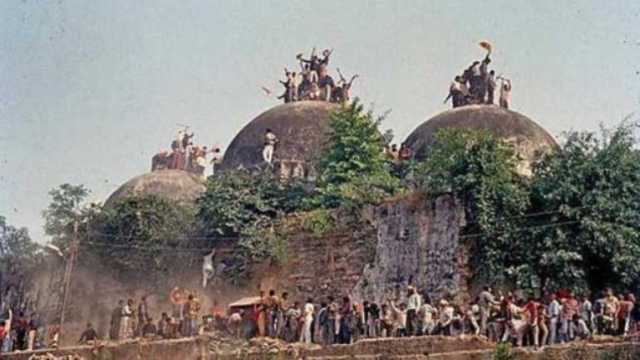New Delhi: The curious case of Sunni Waqf Board has given a fresh twist to Ayodhya title suit, one of the longest running land dispute cases, the verdict in which has been reserved by a five-judge bench of the Supreme Court after a marathon 40-day hearing.
A rift has emerged in the Waqf Board, which has been claiming to be a stakeholder in the Ayodhya land dispute case. One side said that they are ready to go for the settlement while the other is still fiercely contesting the title on the disputed land.
On one side, Sunni Waqf Board counsel and senior advocate Rajeev Dhavan strongly argued claim of ownership of the disputed land while, on the other side, Advocate on Record Shahid Rizvi has said that the parties involved in the Ayodhya title dispute have reached a settlement and thus there will be no need of any judgement in the issue.
However, the Nirmohi Akhara has rubbished the claims on mediation, with its spokesperson Kartick Chopra stating that it seems a rift has emerged in the Waqf Board. However, he said the fresh report over mediation will not have any impact on the case as the court has already reserved its verdict.
Vishnu Shankar Jain, another advocate representing one of the Hindu parties, also said the fresh report over mediation will not impact the final verdict as the court has already reserved the judgement after hearing all sides at length.
Rizvi said once a case is before the court then the parties involved in the matter are entitled to present their case in the best possible manner but at the same time, if the court has a feeling that the case can be settled by mediation, then it should not be ignored.
“There is no bar in discussing outside the court. Specifically in this case, the court, in fact has allowed it (mediation),” Rizvi said.
Two appeals were been filed by the Board in 2011 – the main lawsuit and the Ram Lalla lawsuit.
But Rizvi’s claim was denied by the counsel representing the Board in the top court and they have refused to comment on the nature of the settlement.
In March, the top court has appointed a mediation to amicably settle the issue but when it failed to achieve its goal, it agreed to hear the arguments of all parties. The day-to-day hearing began in the case from August 6 and ended October 16.
IANS
